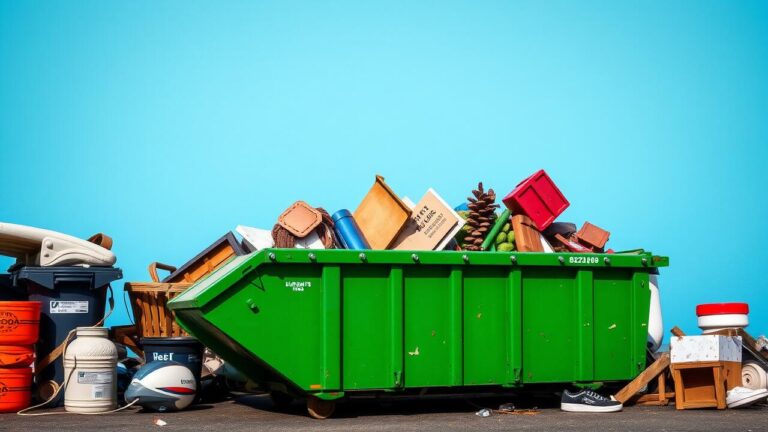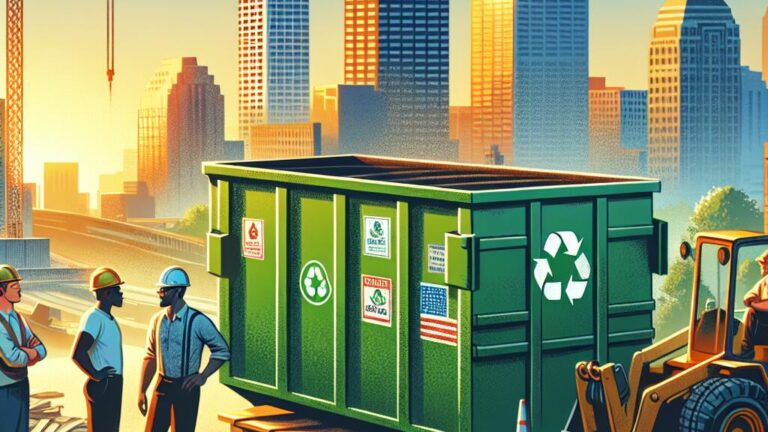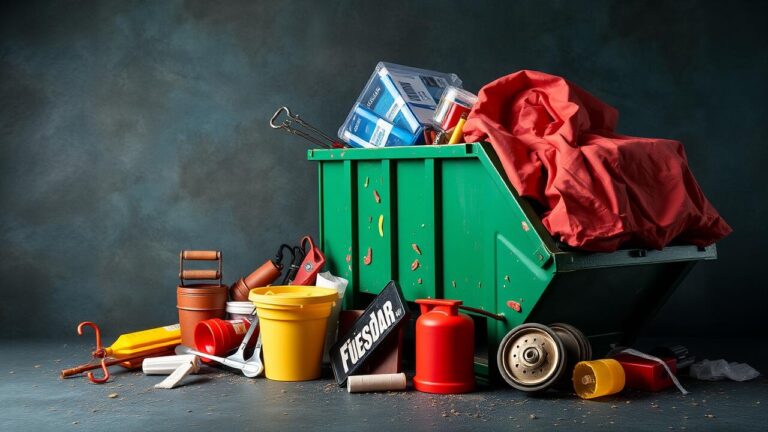Why Use a Residential Dumpster over Regular Trash Collection?
Ideal Projects for Residential Dumpsters
Home renovations often generate a significant amount of debris. This includes materials like wood, drywall, and tiles. Using a residential dumpster allows homeowners to efficiently dispose of these items without waiting for regular trash collection schedules. During a remodel, keeping a clean and organized workspace is crucial. A dumpster makes it easy to collect waste as you go, preventing clutter and enhancing safety.
Large cleanouts, whether they involve decluttering a garage, basement, or attic, can produce various types of waste. Furniture, appliances, and personal belongings can quickly accumulate. A residential dumpster provides ample space for disposal, eliminating the need for multiple trips to the landfill. Choosing this option simplifies the cleanup process and ensures that all unwanted items are managed responsibly and efficiently.
Renovations and Large Cleanouts
Home renovations generate a significant amount of debris and materials that regular trash collection cannot accommodate. Whether you’re updating a kitchen, remodeling a bathroom, or adding a new room, the scale of waste can quickly overwhelm conventional garbage services. Items like old cabinets, countertops, flooring, and larger fixtures require a dedicated space for disposal. A residential dumpster simplifies the process, allowing homeowners to toss these materials without the hassle of multiple trips to the landfill.
Large cleanouts, such as those needed after estate sales or significant decluttering, also benefit from renting a dumpster. Sorting through years of accumulated belongings often reveals unwanted furniture, appliances, and miscellaneous junk. Disposing of these items is much more efficient with a dumpster on-site. Homeowners can throw out items as they sort, maintaining a clean workspace throughout the process. This not only speeds up the cleanup but also alleviates stress during what can be an emotional and labor-intensive task.
TimeSaving Advantages
Using a residential dumpster can significantly reduce the amount of time spent managing waste during projects. Traditional trash collection often requires multiple trips to the curb and waiting for scheduled pickup days. With a dumpster, all waste can be collected and disposed of on-site, eliminating delays and allowing for continuous work without interruptions. This is especially beneficial during large renovation projects or cleanouts when time efficiency is crucial.
Moreover, having a dedicated space for waste management promotes a more organized work environment. Workers can focus solely on their tasks, without the distraction of dealing with overflowing trash bags or making last-minute arrangements for disposal. The convenience of a dumpster streamlines the entire cleanup process, freeing up valuable time that can be redirected towards completing the project more swiftly.
Streamlined Cleanup Processes
Utilizing a residential dumpster simplifies cleanup tasks significantly. When working on larger projects, accumulated waste can quickly become overwhelming. A dedicated dumpster eliminates the need for multiple trips to a landfill or waste facility, thus saving time and energy. Contractors and homeowners alike appreciate the convenience of having a central location for debris, allowing them to focus more on the project at hand instead of the disposal logistics.
The presence of a dumpster onsite also fosters a safer working environment. Construction sites, for example, often accumulate sharp objects and heavy materials that can pose hazards. By containing waste in a designated dumpster, workers minimize the risk of accidents and can maintain a cleaner workspace. Quick access to an organized disposal solution contributes to higher efficiency and overall productivity.
Types of Waste Suitable for Dumpsters
When considering a residential dumpster, it’s important to understand which types of waste can be disposed of in it. Common materials accepted in these containers include household items such as old furniture, renovation debris like drywall and wood, yard waste, and general clutter. Homeowners can efficiently remove large volumes of non-hazardous waste, making these dumpsters suitable for various renovation projects or extensive cleanouts.
Certain materials are prohibited from being placed in residential dumpsters due to safety and environmental regulations. Hazardous waste, electronics, and appliances containing refrigerants typically cannot be included. Additionally, concrete and other heavy materials may require specialized dumpsters to avoid overloading and potential fines. Understanding these restrictions is crucial to ensuring compliance and a smooth disposal process.
Understanding Accepted Materials
When planning a project that requires a residential dumpster, it’s important to understand what materials can be disposed of in the container. Generally, dumpsters can accommodate a wide range of materials including household debris, construction waste, and yard waste. Common accepted items include old furniture, appliances, shingles, and wood. However, items like electronics, hazardous materials, and tires usually fall under different disposal regulations and should be handled separately.
Awareness of the guidelines for accepted materials is crucial for a smooth disposal process. Most companies provide detailed lists of what can and cannot be placed in their dumpsters. Adhering to these rules not only helps avoid extra fees but also ensures compliance with local waste management regulations. It is wise to consult with your dumpster rental provider if there are any uncertainties regarding specific items.
Local Regulations and Compliance
Local regulations play a crucial role in determining how residential dumpsters can be utilized. Homeowners must be aware of zoning laws, permits, and any specific restrictions imposed by their municipality. Some areas may have limitations on the size and placement of dumpsters, while others may require designated permits for their use. These regulations are intended to ensure safety and minimize disruption in residential neighborhoods.
Compliance with local rules not only helps keep neighborhoods clean and organized but also prevents potential fines or legal issues. Homeowners should take the time to review local guidelines before ordering a dumpster. Knowing what materials can be disposed of is equally important, as some waste types may be prohibited, leading to additional costs or complications during the disposal process. Understanding these regulations fosters responsible and efficient waste management.
Staying Within the Guidelines
When renting a residential dumpster, it is crucial to understand and comply with local regulations to avoid fines or penalties. Each municipality has specific rules regarding the placement of dumpsters, the types of waste that can be disposed of, and any necessary permits. It’s advisable to check with local waste management authorities or your rental company for detailed guidelines before starting your project.
Proper waste disposal contributes to community cleanliness and environmental safety. Knowing what materials are accepted in your dumpster is essential, as certain items may require special handling or disposal methods. Many jurisdictions prohibit hazardous materials like batteries, chemicals, and electronic waste from being placed in residential dumpsters. Ensuring compliance not only facilitates an efficient cleanup but also promotes responsible waste management practices.
FAQS
What are the main benefits of using a residential dumpster instead of regular trash collection?
The main benefits include the ability to dispose of larger volumes of waste, convenient access for multiple projects, and time-saving advantages during clean-up. Residential dumpsters can accommodate various materials that regular trash collection may not.
What types of projects are ideal for using a residential dumpster?
Ideal projects for residential dumpsters include home renovations, large cleanouts, yard work, and construction projects. These projects often generate a significant amount of waste that regular trash services may not efficiently handle.
How do residential dumpsters streamline the cleanup process?
Residential dumpsters streamline the cleanup process by providing a single location to dispose of all waste, reducing the need for multiple trips to the landfill or transfer station. This can save time and effort, making it easier to maintain an organized workspace.
What types of waste can typically be disposed of in a residential dumpster?
Most residential dumpsters accept a variety of materials, including construction debris, furniture, yard waste, and general household junk. However, it’s important to check with the rental service for specific accepted materials and any prohibited items.
Are there local regulations I need to be aware of when renting a dumpster?
Yes, local regulations can vary by area. It’s essential to familiarize yourself with any permits, placement restrictions, or disposal guidelines that may apply to dumpster rentals in your locality to ensure compliance.







